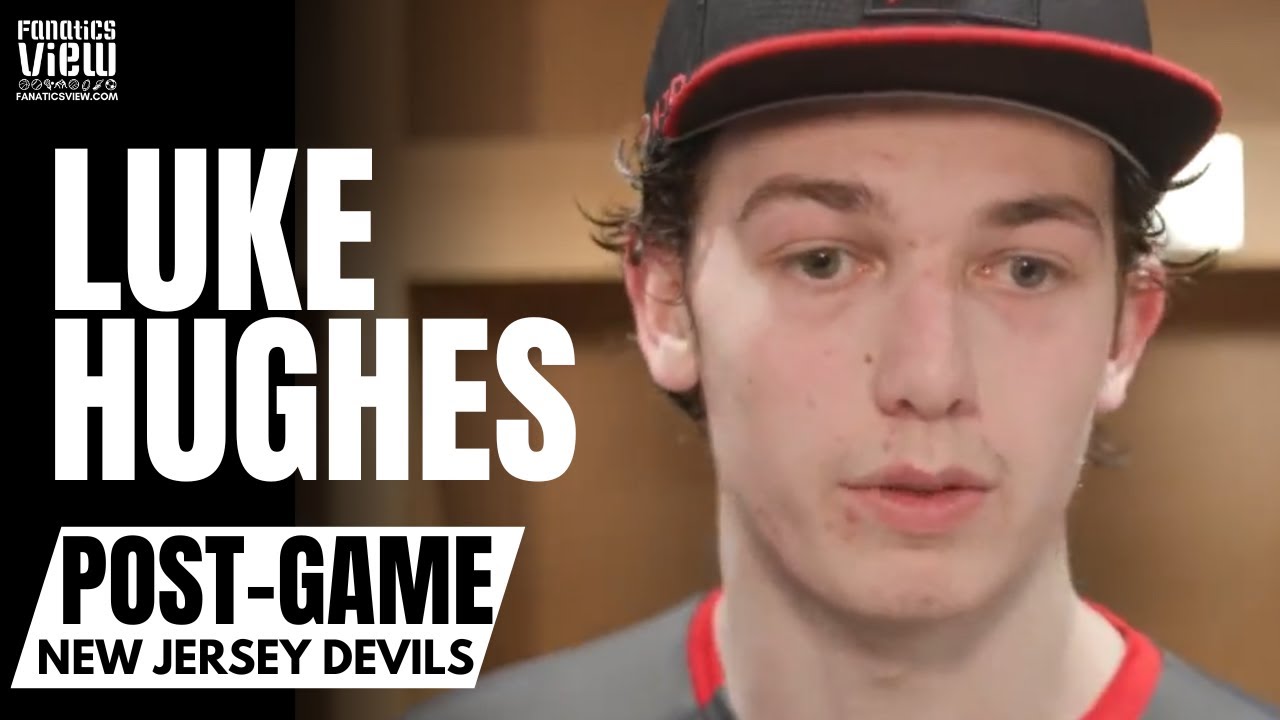In the high-stakes world of professional hockey, contract negotiations are often a tense affair, a complex dance between player ambition, team strategy, and the ever-present salary cap. But when family ties enter the equation, the discussion can take on an entirely new, fascinating dimension. Such is the case currently unfolding with young defenseman Luke Hughes and the New Jersey Devils.
The Numbers Game: Term Over Money
At the heart of the current standoff isn`t a dispute over the annual salary – a common sticking point – but rather the length of the contract term. Luke Hughes, a restricted free agent (RFA) after a promising start to his NHL career, and his camp are reportedly advocating for a five-year deal. The Devils, on the other hand, envision either a shorter, three-year “bridge” contract or a comprehensive eight-year extension.
The Brotherly Pact: A Strategic Play for Future Freedom
The proposed five-year term from the Hughes camp isn`t arbitrary; it`s a meticulously calculated move. The objective? To align Luke`s contract expiry with that of his elder brother, Jack Hughes. Jack, the Devils` dynamic center, signed an eight-year, $64 million deal in 2021. A five-year deal for Luke would see both brothers hit unrestricted free agency (UFA) simultaneously ahead of the 2030-31 season. This shared UFA status could, theoretically, give them significant leverage – perhaps even unprecedented – in future negotiations, whether with the Devils or elsewhere. It’s a testament to a growing trend where players and their agents are thinking not just about the next deal, but about their entire career arc, often with a surprisingly long view.
This isn`t just about money; it`s about timing, family legacy, and strategic career moves. The concept of “brotherly love” extending to multi-million dollar contract synchronization adds a layer of intrigue that`s rarely seen.
The Devils` Perspective: Balancing Risk and Reward
From the New Jersey Devils` vantage point, the situation presents a different set of considerations:
- The Three-Year Bridge Deal: This common strategy allows a team to evaluate a young player`s continued development without a long-term commitment. If Luke continues his upward trajectory, he`d be due for a substantial raise on his next deal, but the team retains control. If his progress plateaus, the team has more flexibility. It`s a “prove it” deal, often preferred by teams when a player is still in the early stages of their career.
- The Eight-Year Extension: This signifies a full commitment, locking up a player for nearly a decade. For a talent like Luke Hughes, who at just 21 years old has already demonstrated significant potential (93 points in 155 career games, averaging over 21 minutes of ice time), an eight-year deal would secure a foundational piece for the future at a potentially lower annual cap hit than if they waited. It’s the ultimate “buy low, lock in” strategy, especially effective if he continues to blossom into a top-tier defenseman.
The challenge for the Devils is that neither of their preferred options aligns with the Hughes camp`s strategic play. While Luke`s plus/minus rating of -34 in his young career might give some pause, it`s also typical for a young, offensive-minded defenseman on a developing team to have such numbers. His raw talent and ice time speak volumes about his potential.
A Fascinating Chess Match
This negotiation transcends the usual back-and-forth. It`s a strategic chess match where family aspirations meet corporate objectives. For the Hughes brothers, it represents a potential future alliance, leveraging their combined market value. For the Devils, it`s about securing a crucial defensive talent while managing the salary cap and long-term roster construction. Will the allure of a unified free agency for two star siblings sway the Devils? Or will the team`s preference for either a short-term proving ground or a long-term commitment ultimately prevail? As the hockey world watches, this particular contract negotiation promises to be as engaging off the ice as any game on it.

